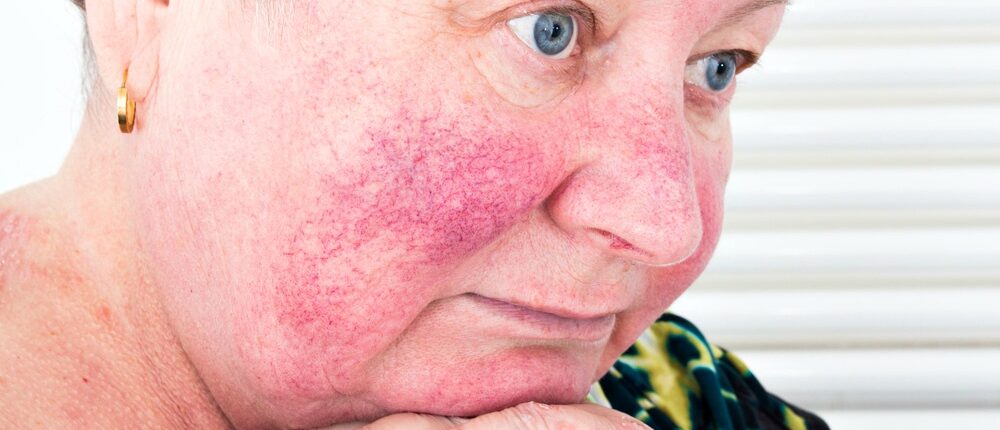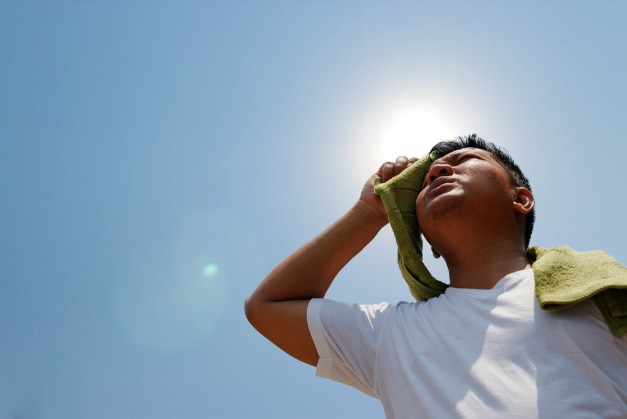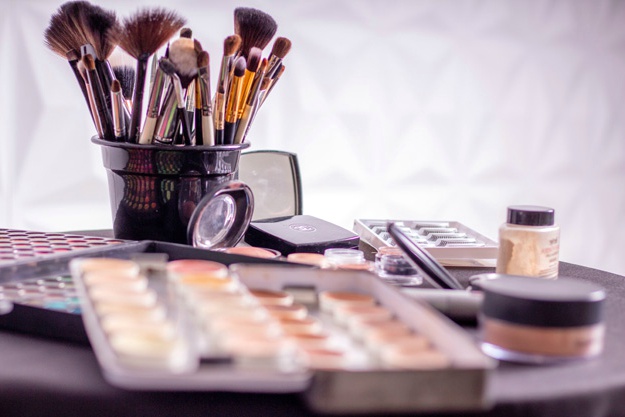

Did you know that rosacea is easily mistaken for eczema, acne or skin allergies? What causes rosacea, a chronic inflammation of the skin which affects roughly 14 million Americans, is still unclear. But medical studies have found links in common, everyday activities that can trigger this chronic inflammation. It turns out that some commonly used skin care products, cosmetics, medications, and even exposure to certain environmental elements can actually increase your chances of developing rosacea. This article aims to help you become more aware of the most common triggers so you can live a happier, healthier, rosacea-free life!
Rosacea Causes | How to Avoid These Triggers
1. Extreme Temperatures

Extreme temperatures, especially during the summer, can cause rosacea flare-ups. During winter, hot baths and indoor heaters can trigger rosacea.
2. Hot Drinks
Among of the most popular triggers of rosacea are hot beverages. These heated drinks cause the blood vessels to expand, resulting in symptoms of rosacea such as redness and flushing.
3. Extreme Exercise
Though exercise can reduce stress levels which can help prevent rosacea, intense workouts have the opposite result. This activity can overheat the skin and cause flushing.
4. Medication
Medications that dilate the blood vessels increase the blood flow near the surface of the skin, thus triggering rosacea. Some of these medications include:
- Corticosteroids
- High blood pressure medication
- Vasodilator pills
- Amiodarone
- High doses of vitamins B12 and B6
5. Alcohol
Alcoholic drinks can cause blood pressure to rise and the skin to heat up. Some patients have experienced flare-ups from drinking red wine. Other alcoholic drinks include:
- Beer
- Bourbon
- Gin
- Vodka
- Champagne
6. Humidity, Wind, and Sunlight
Environmental factors can also cause rosacea symptoms. The sun is the most common trigger for this and other skin ailments. Humidity and cool winds can also be triggers.
7. Skin Cleansers
Some skin cleansers are potential triggers because they contain ingredients that can irritate sensitive skin. These contents may be:
- Menthol
- Alcohol
- Peppermint
- Eucalyptus oil
- Salicylic acid
It’s also recommended to avoid soap-based cleansers and exfoliants as their ingredients can further irritate the skin. Instead, apply a natural advanced plant-rich formula cream on the skin for quick relief from dry and itchy skin. This cream will also naturally rejuvenate and deeply revitalize the skin with amino acids, vitamins, and minerals.
8. Cosmetics

Oil-based foundation, waterproof makeup, and cosmetics with fragrance may irritate the skin and trigger the onset of rosacea. Hair sprays that contain alcohol, fragrances, witch hazel, and acetone or hydro-alcoholic substances are also known to trigger rosacea.
9. Spicy Food
The histamine in spices and spicy food can cause facial flushing, which then leads to rosacea. Some examples are:
- Chili and chili powder
- Mexican food
- Hot peppers
- Cajun-style dishes
- Hot sausage
- Paprika
- Hot sauce
- Red peppers
- Horseradish
10. Emotional Stress
Emotional stress can cause muscle tension, upset stomach, improper digestion, hormonal imbalance, stress on the heart, and breathing difficulty. All these may contribute to physiological manifestations like rosacea and other skin conditions.
11. Dairy Products
Some dairy products like yogurt can also cause a rosacea breakout even during treatment. Any type of cheese other than cottage cheese can also trigger rosacea.
12. Other Foods
Apart from dairy products, spicy food, and hot drinks, there are other foods which can cause rosacea:
- Chocolate
- Vinegar
- Soy Sauce
- Liver
- Citrus fruits
- Avocados
- Spinach
- Eggplant
- Tomatoes
- Figs
- Raisins
Watch this video from Dr. William Groff to find out more about the treatments, symptoms, and causes of rosacea:
The triggers of rosacea flare-ups range from severe weather conditions, lifestyle, diet, medication intake, and emotional health. If you find that you are susceptible to these triggers then it is recommended that you reach out to a health professional who can help create a specific rosacea treatment plan for you.
Is rosacea a skin condition you’re dealing with? We’d love to know your story. Share your experience with us in the comments section below!
Up Next: What Causes Psoriasis? | Symptoms And Treatment
